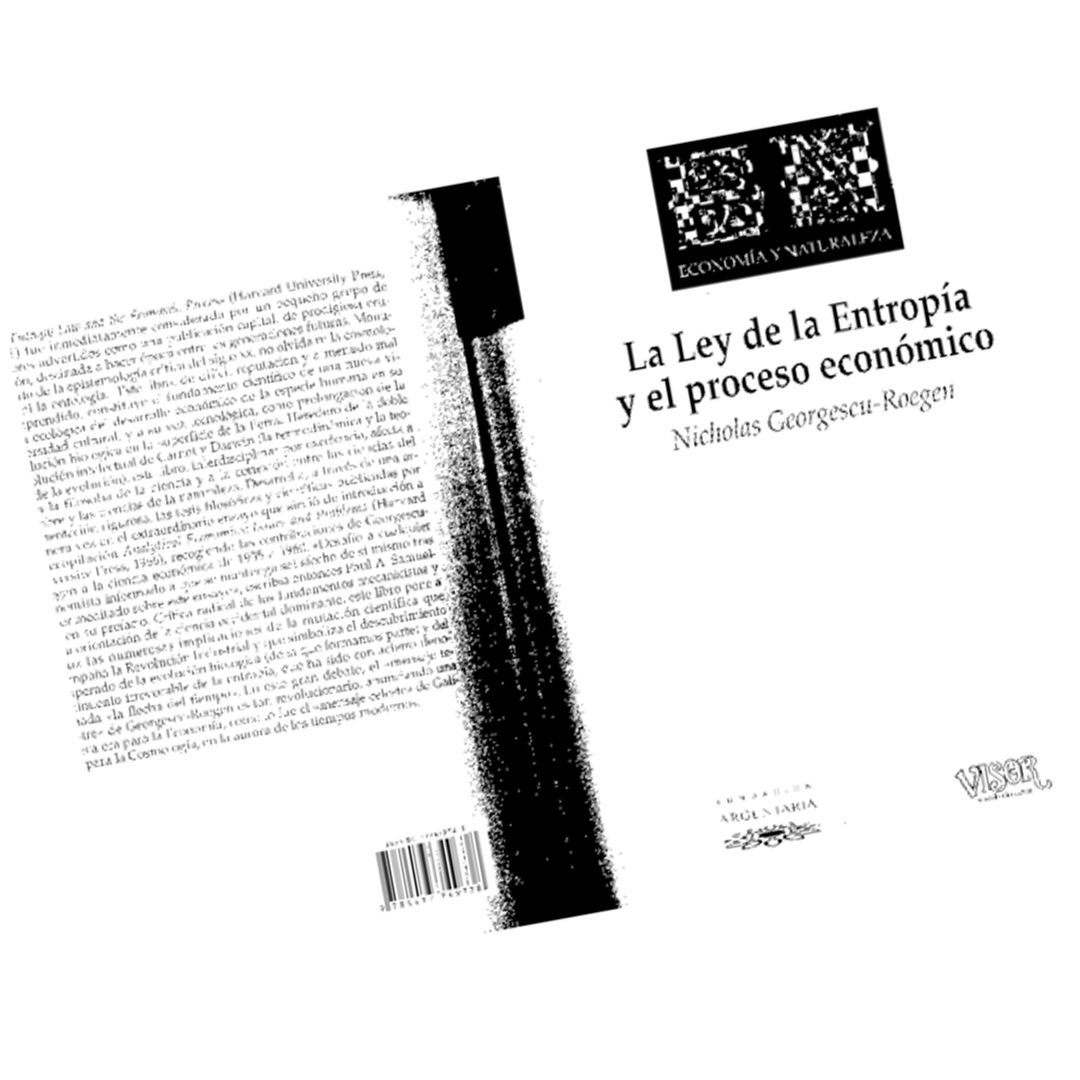Article by Pol Cuscó
Explores the influence of entropy on economics, highlighting how the interaction between physics, thermodynamics, and society shapes economic processes.
Nicholas Georgescu-Roegen, renowned Romanian economist and mathematician, left a lasting mark on the field of economics with his seminal work “The Law of Entropy and the Economic Process.” First published in 1971, this work is known for its contributions to ecological economics and its focus on the relationship between economics and thermodynamics.
Georgescu-Roegen, whose academic training in mathematics began at the University of Bucharest and culminated in a doctorate in mathematical economics at the University of Paris-Sorbonne in 1934, brought with him a unique perspective to the field of economics. Before World War II, he held academic roles and worked in the Romanian National Petroleum Administration. After the war, he became a professor of economics at various universities in the United States. His masterpiece, “The Law of Entropy and the Economic Process,” argues that economics cannot be considered in isolation from physics and thermodynamics. He proposes that entropy, a measure of irreversibility and disorder in a system, is a fundamental concept for understanding economic processes. He maintains that the economy, depending on finite natural resources, is subject to the laws of thermodynamics and entropy.
Georgescu-Roegen’s approach addresses critical issues such as sustainability, resource depletion, and the relationship between economic growth and environmental degradation. Her analysis provides a critical perspective on the long-term viability of unlimited economic growth in a world with limited resources. Delving deeper into chapters VIII-XI of her work reveals a more detailed understanding of how physics and entropy influence the economic process. From an analytical, practically scientific perspective, Georgescu-Roegen explores how both Western capitalism and the communism proposed by Marx are intrinsically linked to the law of entropy due to social growth, both in terms of materials and their lack of closure of the cycle, as in the production process since the introduction of the factory system.
Production, considered as a deficit in terms of entropy, is analyzed as a process that irrevocably exhausts low entropy, generating a net increase in total entropy. The text highlights that “nothing can be achieved without a higher cost in terms of low entropy”, highlighting the need for efficient resource management. Georgescu-Roegen also examines social aspects, such as the pleasure of living, conceptualizing it as a flow with an intensity at each moment of time, not accumulating in stock. It is established that the pleasure of living depends on three factors, two of them favorable (increased flow of consumer goods and prolonged leisure time) and one unfavorable (greater number of working hours or more demanding tasks).
The general value equation becomes a tool to evaluate well-being, considering the value of leisure time, especially in international comparisons and temporal situations, except in overpopulated countries, where free time has zero value since it is not voluntary. Furthermore, the author presents inequality and social conflict as inevitable, pointing out that social production and social organization require a specific category of services without which they cannot possibly function. This category includes the services of supervisors, coordinators, legislators, preachers, teachers, journalists, etc. What distinguishes these services from those of a pallet, a weaver or a postman is that they do not have an objective measurement like the latter do.
Georgescu-Roegen closes his analysis by exploring the limits of the economic process, highlighting its complex interconnection with social, political and biological aspects. He criticizes the static view of conventional economics and highlights the importance of considering the constant evolution of the economic process.
In conclusion, Georgescu-Roegen’s “The Law of Entropy and the Economic Process” offers a visionary perspective that challenges conventional notions of economics, inviting deep reflection on the role of physics, thermodynamics, and entropy in the world. current economic.
Author of the book: Georgescu-Roegen.
Publisher: Fundación Argentaria – Visor Distribuciones.
ISBN: 84-7774-973-6
Book year: 1971
Author of the article: Pol Cuscó.
University: Escuela Técnica Superior de Arquitectura del Vallès.
Article year: 2023





